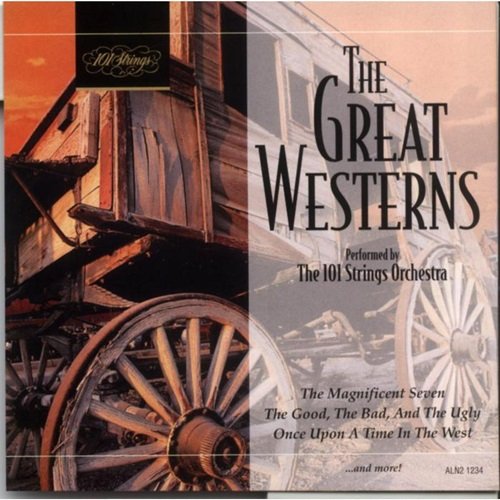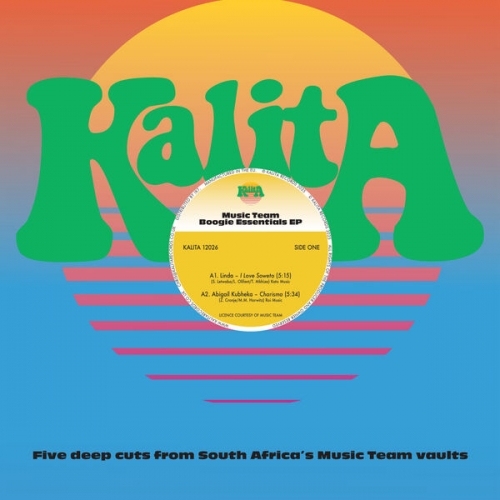Jim Riley's Blues Foundation - A Very British Blues Explosion (2018)
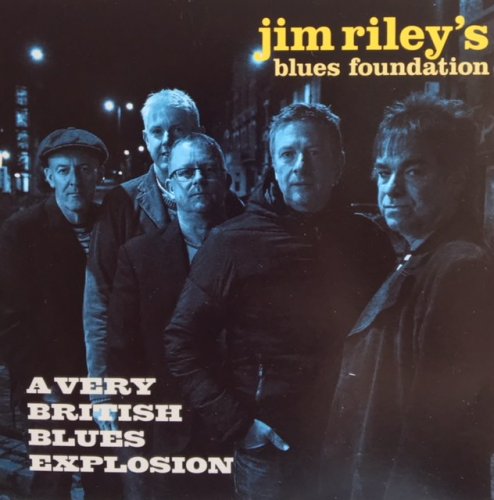
Artist: Jim Riley's Blues Foundation
Title: A Very British Blues Explosion
Year Of Release: 2018
Label: Trouserphonic
Genre: Rock, Blues
Quality: MP3 / 320 kbps | FLAC (tracks+.cue)
Total Time: 41:51
Total Size: 95 MB | 283 MB
WebSite: Album Preview
Tracklist: Title: A Very British Blues Explosion
Year Of Release: 2018
Label: Trouserphonic
Genre: Rock, Blues
Quality: MP3 / 320 kbps | FLAC (tracks+.cue)
Total Time: 41:51
Total Size: 95 MB | 283 MB
WebSite: Album Preview
01. Running Out of Time (4:18)
02. Baby Please Don't Go (2:57)
03. Help Me (3:57)
04. She Can Fight for Herself (3:28)
05. Come Love (2:59)
06. Ain't No Love in the Heart of the City (4:28)
07. Crocodile Walk (2:28)
08. Can't Find a Job (4:43)
09. One Room Country Shack (4:31)
10. Talkin' 'Bout You (2:32)
11. A Change Is Gonna Come (3:18)
12. Under Canvas (2:11)
Glenn Prangnell’s Trouserphonic Records label is home to Groovy Uncle and Suzi Chunk and has done an excellent job keeping the flag flying for the beat and R&B sounds of the Sixties. This release, the first on the label that doesn’t feature Prangnell or Chunk, makes it clear from the off with the band's name that record producer Jim Riley has taken a slightly different route with his debut for the label.
Backed by The Claim and recorded at Ranscombe Studios in Kent the dozen songs, four originals and eight cover versions, are gritty, raw and steeped in the blues and R&B. Some were originally written and recorded before the decade that label owner Prangnell takes his inspiration from; many of these songs were born before the sixties took shape.
As soon as the album kicks off (and kick off it does) with a Jim Riley original, ‘Running Out Of Time’, it’s obvious that the producer has paired up with the right band to capture the authentic R&B sound that he was aiming for. The songs were recorded live with minimal overdubs and it shows. The sound is far from lo-fi. In fact it’s as sharp as a brand new Stanley blade. The band is so tight, and Riley has managed to capture not only an intimate and live sound but also the obvious pleasure this group of musicians felt while recording these tracks. ‘Running Out Of Time’ thunders in, Riley’s waling harmonica and his surprisingly powerful vocals immediately grabbing the listener’s attention. This R&B stomper brings the 60's strain of this genre kicking and screaming into 2018. Just try standing still to this cracker as it’s a Friday night classic. Despite an inspired choice of covers it’s the originals and especially this opening shot that will stay in your mind and draw you back to the album; just one indication of how brilliant this band is and why an album of originals must surely be their next move.
The covers that Riley has chosen tend to be familiar songs that have already been covered by many bands and artists through the years such as, for example, ‘Baby Please Don’t Go’; for all the excellent versions of this song it’s the one by Them that most are familiar with so do we really need another take on the song? There are those who are much more qualified than this scribe who can explain why such an age-old familiar song sounds like it’s had a blood transfusion and gained a new lease of life while not really diverting too much from the version we grew up to and have loved and lived with for decades. All I know is that, as with the other covers on ‘A Very British Blues Explosion’, Riley and company have added an edge, at times both raw and polished, to these songs which lend them a contemporary sound. Sonny Boy Williamson’s oft covered ‘Help Me’ is dominated by Riley’s harmonica and again his vocals are a revelation. While the contributions from David Read on lead guitar, David Arnold on rhythm, Martin Bishop sitting on the drum stool and Stuart Ellis on bass should not be underestimated, this song really is a showcase for the talents of Riley; he really is a soul singer of no little worth and his touches of Hammond are almost as compelling as his harmonica playing.
‘She Can Fight for Herself’ is another original and like that opening cut it mixes Riley’s love of R&B with a pop sensibility, which make the original songs instantly appealing and on a par with the more familiar covers. One of the most inspired readings is on Jimmy Reed’s ‘Come Love’. The chugging blues is again dominated by Riley’s harmonica playing which makes this take irresistible. If you’ve heard Bobby Bland’s version of ‘Ain’t No Love in the Heart of the City’ you don’t need to hear another artist’s take on it, do you? Give a listen to Riley’s version here; again it’s difficult to explain just what Riley has done to the song to make it sound contemporary without losing any of the original feel. These are timeless songs, for sure, but they really have taken on a new life in the hands of Riley and the guys from The Claim.
Elsewhere there are covers of John Mayall’s ‘Crocodile Walk’, Chuck Berry’s ‘Talkin’ ‘Bout You’ and the much-covered ‘One Room Country Shack’, all of which deserve to be heard despite all the other versions that we’ve heard as Riley has captured something here that fans of these songs need to hear. And check the credits while you’re listening; ‘Can’t Find a Job’ is an original, a wailing slab of R&B of the kind that just isn’t being written today, or so we thought.
The closing two songs throw a different light on things; Riley’s cover of Sam Cooke’s ‘A Change is Gonna Come’, with strings by Richard Moore, shows that Riley has a tender side too. Once more his vocals are outstanding showing his soulful side is just as effective as his blues wailing. This song, maybe more than some of the other covers, will be familiar to so many yet Riley still takes it to places it has only fleeting visited before and once again leaves the listener trying to discover just what this talented band have done to make such an impression with such a familiar song. Still searching…
Maybe the biggest surprise is left until the closing song, ‘Under Canvas’, a short original where once again Riley shows his tender side vocally. Acoustic guitars, soothing harmonica and a heartfelt yet restrained vocal performance all give evidence that there’s so much more to Riley than a talented producer who knows how to drag the R&B sounds of the 1950s and '60s successfully into 2018. And further evidence that we need an album of originals from Riley and this band very soon.
Backed by The Claim and recorded at Ranscombe Studios in Kent the dozen songs, four originals and eight cover versions, are gritty, raw and steeped in the blues and R&B. Some were originally written and recorded before the decade that label owner Prangnell takes his inspiration from; many of these songs were born before the sixties took shape.
As soon as the album kicks off (and kick off it does) with a Jim Riley original, ‘Running Out Of Time’, it’s obvious that the producer has paired up with the right band to capture the authentic R&B sound that he was aiming for. The songs were recorded live with minimal overdubs and it shows. The sound is far from lo-fi. In fact it’s as sharp as a brand new Stanley blade. The band is so tight, and Riley has managed to capture not only an intimate and live sound but also the obvious pleasure this group of musicians felt while recording these tracks. ‘Running Out Of Time’ thunders in, Riley’s waling harmonica and his surprisingly powerful vocals immediately grabbing the listener’s attention. This R&B stomper brings the 60's strain of this genre kicking and screaming into 2018. Just try standing still to this cracker as it’s a Friday night classic. Despite an inspired choice of covers it’s the originals and especially this opening shot that will stay in your mind and draw you back to the album; just one indication of how brilliant this band is and why an album of originals must surely be their next move.
The covers that Riley has chosen tend to be familiar songs that have already been covered by many bands and artists through the years such as, for example, ‘Baby Please Don’t Go’; for all the excellent versions of this song it’s the one by Them that most are familiar with so do we really need another take on the song? There are those who are much more qualified than this scribe who can explain why such an age-old familiar song sounds like it’s had a blood transfusion and gained a new lease of life while not really diverting too much from the version we grew up to and have loved and lived with for decades. All I know is that, as with the other covers on ‘A Very British Blues Explosion’, Riley and company have added an edge, at times both raw and polished, to these songs which lend them a contemporary sound. Sonny Boy Williamson’s oft covered ‘Help Me’ is dominated by Riley’s harmonica and again his vocals are a revelation. While the contributions from David Read on lead guitar, David Arnold on rhythm, Martin Bishop sitting on the drum stool and Stuart Ellis on bass should not be underestimated, this song really is a showcase for the talents of Riley; he really is a soul singer of no little worth and his touches of Hammond are almost as compelling as his harmonica playing.
‘She Can Fight for Herself’ is another original and like that opening cut it mixes Riley’s love of R&B with a pop sensibility, which make the original songs instantly appealing and on a par with the more familiar covers. One of the most inspired readings is on Jimmy Reed’s ‘Come Love’. The chugging blues is again dominated by Riley’s harmonica playing which makes this take irresistible. If you’ve heard Bobby Bland’s version of ‘Ain’t No Love in the Heart of the City’ you don’t need to hear another artist’s take on it, do you? Give a listen to Riley’s version here; again it’s difficult to explain just what Riley has done to the song to make it sound contemporary without losing any of the original feel. These are timeless songs, for sure, but they really have taken on a new life in the hands of Riley and the guys from The Claim.
Elsewhere there are covers of John Mayall’s ‘Crocodile Walk’, Chuck Berry’s ‘Talkin’ ‘Bout You’ and the much-covered ‘One Room Country Shack’, all of which deserve to be heard despite all the other versions that we’ve heard as Riley has captured something here that fans of these songs need to hear. And check the credits while you’re listening; ‘Can’t Find a Job’ is an original, a wailing slab of R&B of the kind that just isn’t being written today, or so we thought.
The closing two songs throw a different light on things; Riley’s cover of Sam Cooke’s ‘A Change is Gonna Come’, with strings by Richard Moore, shows that Riley has a tender side too. Once more his vocals are outstanding showing his soulful side is just as effective as his blues wailing. This song, maybe more than some of the other covers, will be familiar to so many yet Riley still takes it to places it has only fleeting visited before and once again leaves the listener trying to discover just what this talented band have done to make such an impression with such a familiar song. Still searching…
Maybe the biggest surprise is left until the closing song, ‘Under Canvas’, a short original where once again Riley shows his tender side vocally. Acoustic guitars, soothing harmonica and a heartfelt yet restrained vocal performance all give evidence that there’s so much more to Riley than a talented producer who knows how to drag the R&B sounds of the 1950s and '60s successfully into 2018. And further evidence that we need an album of originals from Riley and this band very soon.
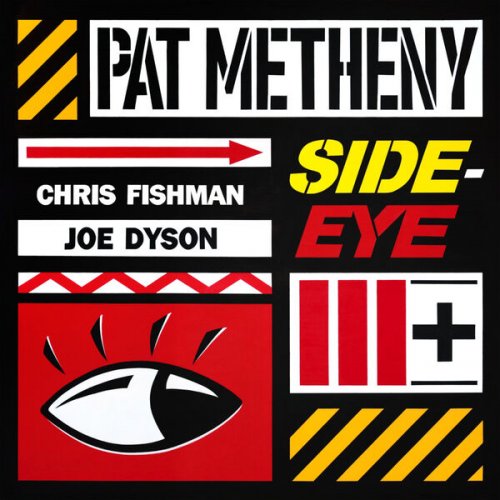
![Jazz at Lincoln Center Orchestra & Wynton Marsalis - We the People (2026) [Hi-Res] Jazz at Lincoln Center Orchestra & Wynton Marsalis - We the People (2026) [Hi-Res]](https://www.dibpic.com/uploads/posts/2026-02/1772178708_cover.jpg)
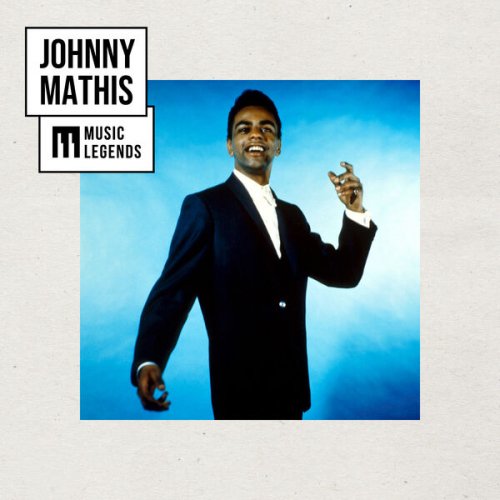


![Cheo Feliciano - Mi Tierra y Yo (Remastered 2026) (2026) [Hi-Res] Cheo Feliciano - Mi Tierra y Yo (Remastered 2026) (2026) [Hi-Res]](https://img.israbox.com/img/2026-02/26/3utwbyq7th3hn4a5zsf7qsky1.jpg)
